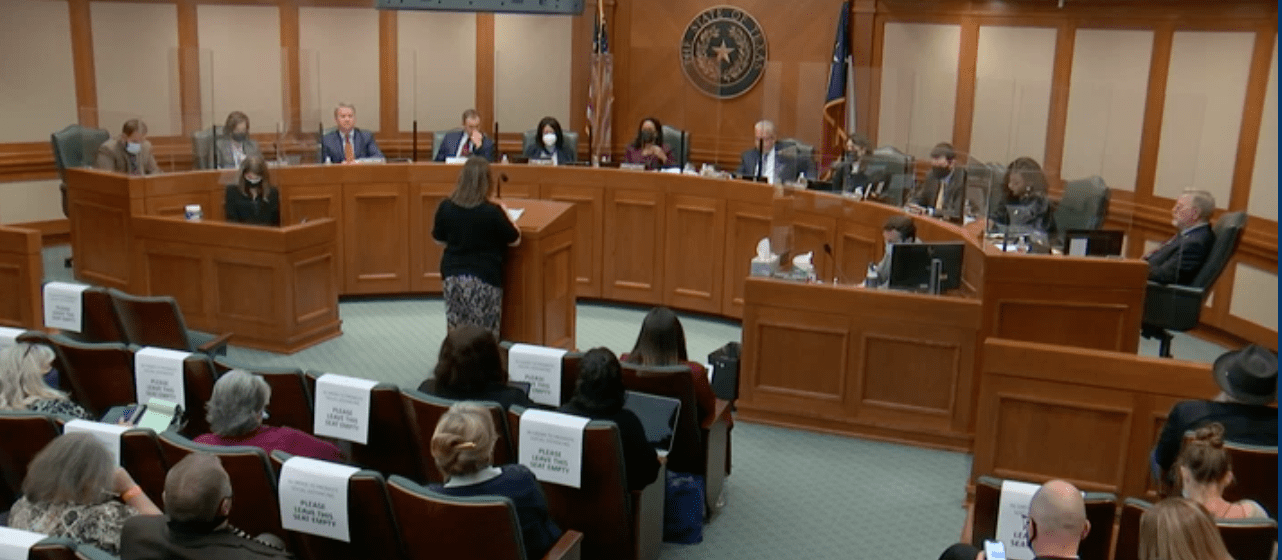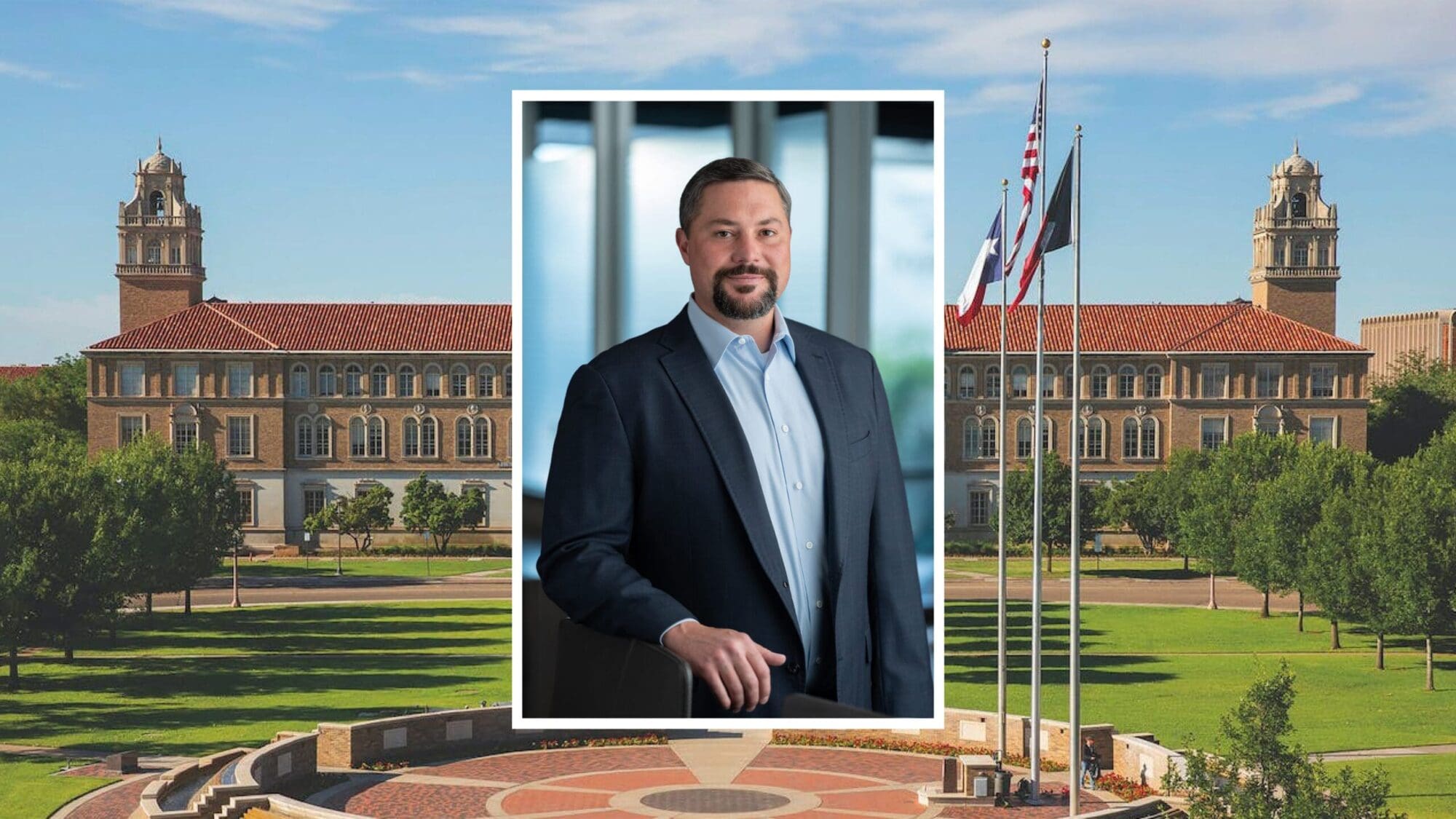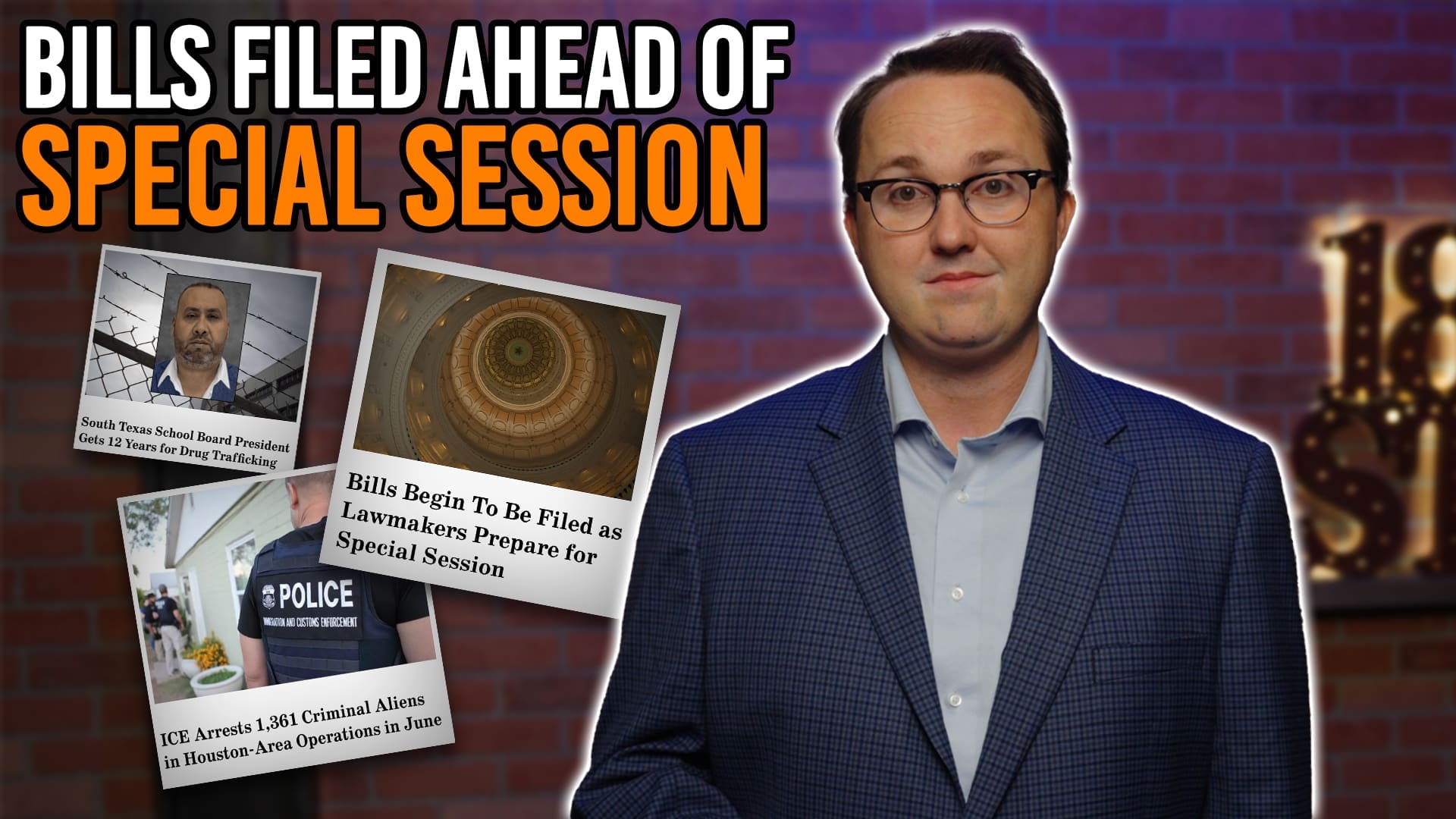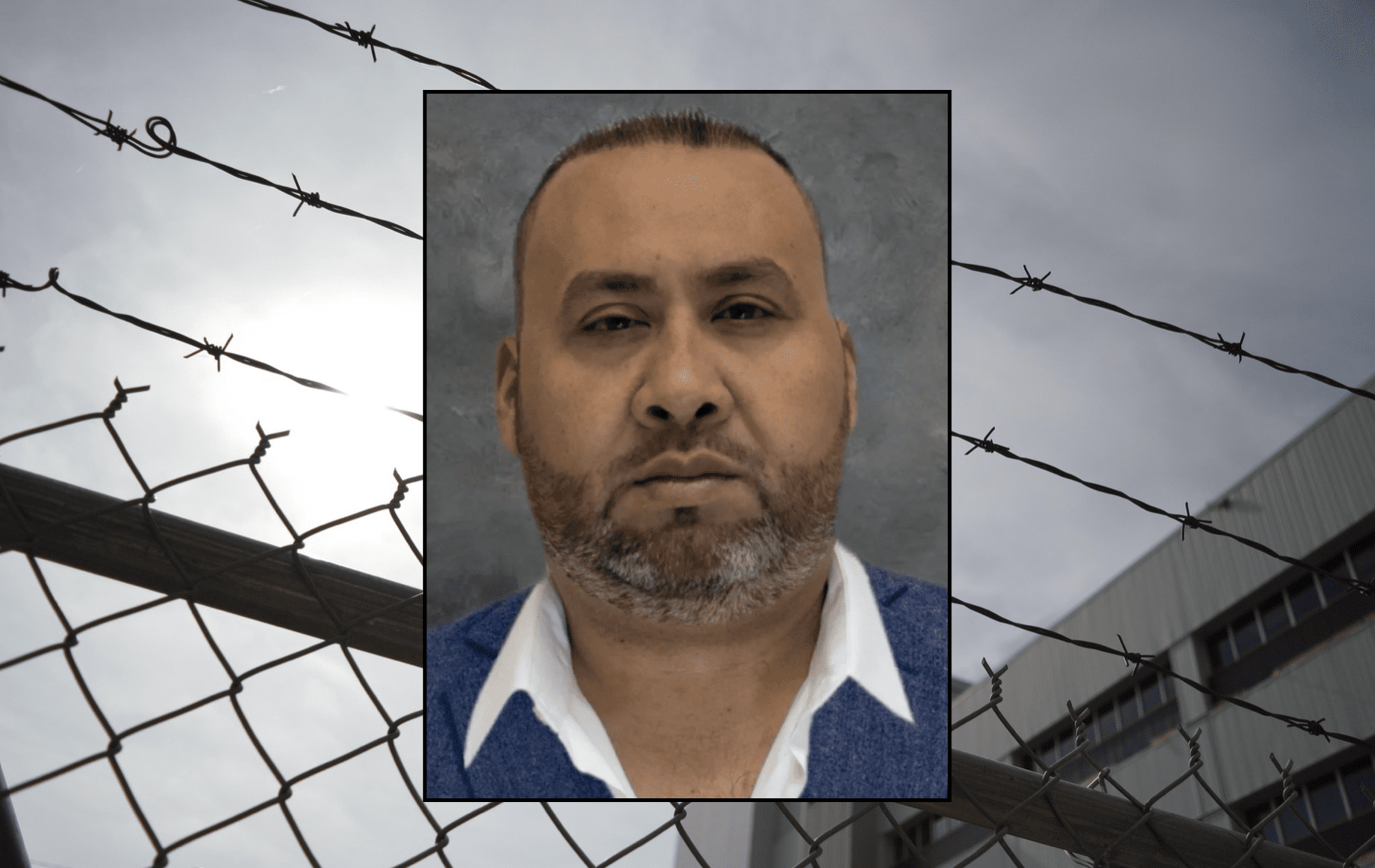Ashley Pardo—whose parental rights were violated in 2019—was among citizens who voiced their concerns Monday night about a controversial bill Pardo says would “essentially criminalize a parent for what they think or believe and put in their [child’s] medical record.”
On Monday evening, the Texas House Criminal Jurisprudence Committee held a hearing on State Rep. David Cook’s (R–Mansfield) House Bill 1773. The bill would criminalize Munchausen by proxy, which is defined as:
A psychological disorder in which a parent and typically a mother harms her child (as by poisoning), falsifies the child’s medical history, or tampers with the child’s medical specimens in order to create a situation that requires or seems to require medical attention.
Cook told committee members he was asked by Tarrant County Sheriff Bill Waybourn to carry the bill “on behalf of his daughter.”
Waybourn and his wife shared with committee members the story of their adopted daughter, Alyssa, who they said was abused by her birth mother who had also committed Munchausen by proxy. Waybourn argued Child Protective Services (CPS) is not trained for those types of cases and, unlike current law, he believes HB 1773 “would hopefully get us in front of those things.”
Ashley Pardo, a mother whose parental rights were wrongly violated in the past, disagreed.
In June 2019, Child Protective Services came to Pardo’s house—unannounced and with armed officers—and illegally took her 4-year-old son, Drake, who had many medical and developmental needs. CPS justified the raid by citing undisclosed “medical child abuse,” but eventually admitted they had no justification. The Texas Supreme Court ordered Drake to be returned home later that year, and last December the Pardos were removed from Texas’ child abuse registry.
“The way this bill reads it would essentially criminalize a parent for what they think or believe and put in their medical record,” Pardo told committee members. “We don’t have a way to edit or fix mistakes, or entries of false information.”
“I’m very much opposed to the bill,” Pardo’s attorney, Chris Branson, told Texas Scorecard. “Basically, what it does is it injects the concept of the thoughtcrime into child abuse cases now.”
“[In] the current statute, you have to have actually harmed the child in order for it to be criminally prosecutable,” Branson explained. “In this one […] a non-medically trained person—a parent—has to pass on wrong information about a medical record, or something another doctor said, and if they can infer that you gave them this wrong information with the intent of harming your child, that’s prosecutable. It’s a huge difference.”
That’s just the road we shouldn’t go down. That’s thoughtcrime.
“In the Pardo case, the word ‘intent’ was built into the records,” Judy Powell, who consults as a parent advocate, told committee members Monday. “I’m actually in one of those medical records, and I’m being lied about.”
“Why are the medical records a big issue?” Attorney Maureen Ball asked. “It’s because the medical providers themselves are altering the medical records.”
But is “intent” a low bar?
“I know it’s a hugely low bar in CPS cases, which is on the civil side,” Branson replied. “But my fear is even if you’re not able to prove intent in a criminal trial, there are plenty of prosecutors out there that will say, ‘Well, let’s tee it up and see if we can get a jury to bite.’”
Pardo explained how HB 1773 would have compounded her persecution.
“Not only would my family [have] suffered the horrific drama … the drama would have been tenfold,” she said. “We also would have had to go through the simultaneous criminal investigation.”
There’s also the question of whether the law is needed, as Attorney Ball pointed out.
“You’ve got good existing laws that have been successful. Why do you need another one?” When asked for proof, Ball pointed to the situation involving Alyssa Waybourn.
“Because Alyssa’s mom was prosecuted and convicted,” she said.
Other citizens expressed concern with the bill.
“As much as this bill can criminalize a parent, it also has the possibility of criminalizing a caregiver,” citizen Megan Marrero told committee members. “Who and what defines ‘unneeded,’ especially in respect to elder care?”
“Several years ago, my son was [diagnosed with] failure to thrive and was dying,” Adrian of Protect TX Fragile Kids said, adding the surgeries normally associated with Munchausen’s was what her son needed. “I was accused of Munchausen’s.”
She added Munchausen’s makes up 0.4 percent of the population.
“It can criminalize parents […] it can be used to cover up medical malpractice,” citizen Ashley Trig said of HB 1773. “It allows law enforcement to determine medical necessity without medical training. That is terrifying.”
“I think it’s valuable that the Pardo case began because of a complaint Ashley made against the hospital,” Krista McIntire, a legal consultant on CPS issues for attorneys statewide, told the committee. “The medical records that you keep hearing about … parents have absolutely no control over what’s being put in there.”
In response to a question from Cook, McIntire pointed out that, in her experience, letters from parents to hospitals disputing medical record accuracy aren’t included later in the record.
“This bill is not only dangerous, it is simply not needed,” she said.
State Rep. Nicole Collier (D–Fort Worth) asked Ball if HB 1773 can be fixed.
“Absolutely not,” Ball replied. “Another law is not needed in this situation. What you need is training [and] education.”
“There is no fixing this bill,” McIntire told Texas Scorecard.
HB 1773 has been left in the Criminal Jurisprudence Committee.
Concerned citizens may contact committee members and their state representative. Details about HB 1773 are available at Texas Legislature Online.
Ashley Pardo’s full testimony can be viewed below.





